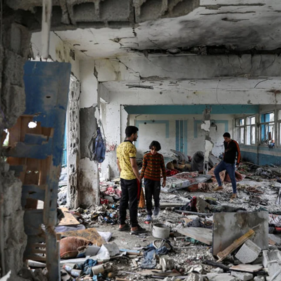Afghanistan was the top producer of opium in the world. According to a United Nations report, the country’s opium yield has dropped by nearly 95 percent since the country’s current government banned it.
According to a report by the United Nations Office on Drugs and Crime (UNODC), opium cultivation across the country has decreased from 233,000 hectares to less than 10,800 hectares in 2023. Opium production fell by 95 percent to 333 tonnes from the previous year.
This is putting pressure on farmers in war-torn countries, where most people depend on agriculture and the value of poppy (opium/poppy) exports sometimes exceeds the value of all formal exports, the agency’s report said. The Taliban’s policy changes will have far-reaching effects on the country’s economy. Almost two-thirds of the country’s current population is already in need of humanitarian assistance.
Ghada Wali, UNODC’s executive director, said in a statement that Afghanistan needs large investments in the coming months to enable Afghan farmers to wean themselves off opium and build sustainable livelihoods.
The Taliban’s supreme leader banned drug cultivation in April 2022. Earlier, in 2000, when the Taliban were in power, they banned opium cultivation. Terming opium cultivation as ‘un-Islamic’, then Taliban leader Mullah Mohammad Omar said anyone planting poppy seeds would be severely punished.
However, experts believe that they took the initiative as a strategy to gain international recognition and funding.
Afghanistan’s Helmand province was once home to more than half of the country’s opium cultivation. However, opium cultivation has declined since the Taliban ban. Now wheat is also being considered as an alternative. The decline in poppy cultivation has led to an increase in wheat cultivation in the same region, but poor farmers seem less likely to take it up as profits are low.









